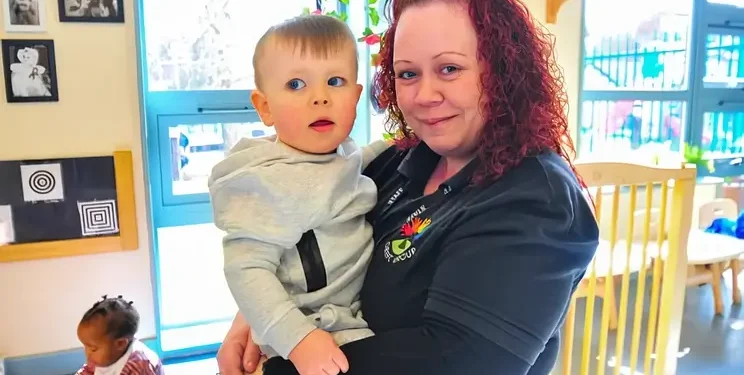Ofsted’s recent report highlights the critical role of experienced early years practitioners in delivering quality care and education for children under two, amidst growing demand due to government childcare reforms.
The report underscores the need for professional development to address gaps in understanding physical development support.
Challenges in Early Years Education
The expansion of childcare access through government reforms has brought recruitment challenges to the forefront.
Retaining experienced staff is becoming increasingly difficult, which may affect the quality of care provided.
This situation is exacerbated by misconceptions among some practitioners who believe that babies are too young to be taught, impacting curriculum delivery.
Strengths and Weaknesses
- Effective use of dedicated caregivers or “key persons” is a strength in many settings.
- Strong parent-practitioner relationships are crucial for child development.
- Mixed-age groupings during routine times may limit high-quality interactions.
The Importance of Qualifications
The Ofsted report emphasizes that higher qualifications among early years practitioners are essential for maintaining nursery quality and parental trust.
As demand increases, professionals may face pressure to upskill, while nurseries risk reputational damage if standards slip.
This aligns with Jayne Coward’s (Ofsted’s Deputy Director of Early Years Regulatory Policy and Practice) view that early education quality significantly influences long-term academic success.
She said,
“We know that a child’s first few years are crucial to their future learning and development. By providing children with an excellent start in those first two years, we can ensure that they gain the foundation they need to thrive throughout school and beyond.
With the government’s childcare reforms, we can expect to see an increase in the number of babies and toddlers accessing early education. It’s vital we get it right for all of these children from the very start.
I hope that this report helps early years practitioners to continue reflecting on and refining their approach to supporting our very youngest children.”
Global Trends in Early Education
The challenges faced by England are not unique; similar issues exist in Wales and Scotland, where devolved education policies emphasize qualifications.
Australia’s Early Years Learning Framework also prioritizes qualified staff, indicating a global trend toward formalizing early education standards.
Future Implications
If investment in training does not increase, staff shortages could lead to reliance on less-qualified practitioners, risking non-compliance with EYFS standards.
Long-term consequences might include widening developmental gaps between children in high- and low-quality settings.
Additional Reading
The Takeaway
The emphasis on qualified practitioners highlights the importance of investing in early childhood education as a foundation for future learning success.
Addressing recruitment challenges and misconceptions about teaching young children will be crucial as childcare reforms continue to expand access across the UK.
Discover more of Todays Top Breaking News Stories!
Sources: UK Government, National Day Nurseries Association, and Ofsted.
Prepared by Ivan Alexander Golden, Founder of THX News™, an independent news organization delivering timely insights from global official sources. Combines AI-analyzed research with human-edited accuracy and context.








